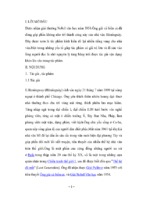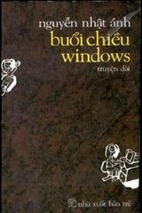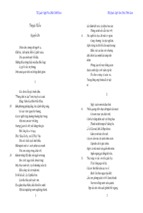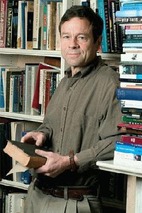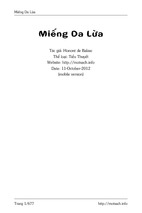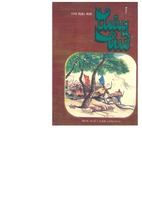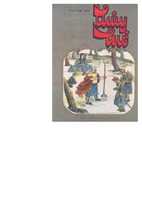EVELYN WAUGH
BRIDESHEAD REVISITED
THE SACRED AND PROFANE MEMORIES
OF CAPTAIN CHARLES RYDER
Penguin Books Ltd, Harmondsworth, Middlesex, England
Penguin Books, 625 Madison Avenue, New York, New York 10022, U.S.A.
Penguin Books Australia Ltd,
Ringwood, Victoria, Australia
Penguin Books Canada Ltd, 2801 John Street,
Markham, Ontario, Canada L3R IB4
Penguin Books (N.Z.) Ltd, 182-190 Wairau Road,
Auckland 10, New Zealand
First published by Chapman & Hall 1945
Published in Penguin Books 1951
Reprinted 1952, 1954, 1957, 1959
Revised edition first published by Chapman & Hall 1960
Published in Penguin Books 1962
Reprinted 1964, 1967, 1968, 1970, 1972, 1973, 1975,
1976, 1977,1978, 1979, 1980 (twice), 1981
Copyright 1945 by Evelyn Waugh
All rights reserved
Made and printed in Great Britain
by Richard Clay (The Chaucer Press) Ltd, Bungay, Suffolk
Set in Monophoto Baskerville
Except in the United States of America,
this book is sold subject to the condition
that it shall not, by way of trade or otherwise,
be lent, re-sold, hired out, or otherwise circulated
without the publisher's prior consent in any form of
binding or cover other than that in which it is
published and without a similar condition
including this condition being imposed
on the subsequent purchaser
AUTHOR'S NOTE
I am not I: thou art not he or she:
they are not they
E.W.
-1-
CONTENTS
Preface
Prologue: BRIDESHEAD REVISITED
Book One:
ET IN ARCADIA EGO
Chapter One: I meet Sebastian Flyte - and Anthony Blanche - I visit Brideshead for
the first time
Chapter Two: My cousin Jasper's Grand Remonstrance - a
warning against
charm - Sunday morning in Oxford
Chapter Three: My father at home - Lady Julia Flyte
Chapter Four: Sebastian at home - Lord Marchmain abroad
Chapter Five: Autumn in Oxford - dinner with Rex Mottram and supper with Boy
Mulcaster - Mr Samgrass - Lady Marchmain at home - Sebastian contra mundum
Book Two:
BRIDESHEAD DESERTED
Chapter One: Samgrass revealed - I take leave of Brideshead - Rex revealed
Chapter Two: Julia and Rex
Chapter Three: Mulcaster and I in defence of our country Sebastian abroad - I
take leave of Marchmain House
Book Three: A TWITCH UPON THE THREAD
Chapter One: Orphans of the Storm
Chapter Two: Private view - Rex Mottram at home
Chapter Three: The fountain
Chapter Four: Sebastian contra mundum
Chapter Five: Lord Marchmain at home - death in the Chinese drawing-room - the
purpose revealed
Epilogue: BRIDESHEAD REVISITED
To
LAURA
-2-
PREFACE
THIS novel, which is here re-issued with many small additions and some substantial
cuts, lost me such esteem as I once enjoyed among my contemporaries and led me into
an unfamiliar world of fan-mail and press photographers. Its theme - the operation of
divine grace on a group of diverse but closely connected characters - was perhaps
presumptuously large, but I make no apology for it. I am less happy about its form,
whose more glaring defects may be blamed on the circumstances in which it was
written.
In December 1943 1 had the good fortune when parachuting to incur a minor injury
which afforded me a rest from military service. This was extended by a sympathetic
commanding officer, who let me remain unemployed until June 1944 when the book
was finished. I wrote with a zest that was quite strange to me and also with impatience
to get back to the war. It was a bleak period of present privation and threatening disaster
- the period of soya beans and Basic English - and in consequence the, book is infused
with a kind of gluttony, for food and wine, for the splendours of the recent past, and for
rhetorical and ornamental language, which now with a full stomach I find distasteful. I
have modified the grosser passages but have not obliterated them because they are an
essential part of the book.
I have been in two minds as to the treatment of Julia's outburst about mortal sin and
Lord Marchmain's dying soliloquy. These passages were never of course, intended to
report words actually spoken. They belong to a different way of writing from, say, the
early scenes between Charles and his father. I would not now introduce them into a
novel which elsewhere aims at verisimilitude. But I have retained them here in
something near their original form because, like the Burgundy (misprinted in many
editions) and the moonlight they were essentially of the mood of writing; also because
many readers liked them, though that is not a consideration of first importance.
It was impossible to foresee, in the spring of 1944, the present cult of the English
country house. It seemed then that the ancestral seats which were our chief national
artistic achievement were doomed to decay and spoliation like the monasteries in the
sixteenth century. So I piled it on rather, with passionate sincerity. Brideshead today
would be open to trippers, its treasures rearranged by expert hands and the fabric better
maintained than it was by Lord Marchmain. And the English aristocracy has maintained
its identity to a degree that then seemed impossible. The advance of Hooper has been
held up at several points. Much of this book therefore is a panegyric preached over an
empty coffin. But it would be impossible to bring it up to date without totally destroying
it. It is offered to a younger generation of readers as a souvenir of the Second War rather
than of the twenties or of the thirties, with which it ostensibly deals.
Combe Florey 1959
E.W.
-3-
PROLOGUE
BRIDESHEAD REVISITED
WHEN I reached 'C' Company lines, which were at the top of the hill, I paused and
looked back at the camp, just coming into full view below me through the grey mist of
early morning. We were leaving that day. When we marched in, three months before,
the pjace was under snow; now the first leaves of spring were unfolding. I had reflected
then that, whatever s cenes of desolation lay ahead of us, I never feared one more brutal
than this, and I reflected now that it had no single happy memory for me.
Here love had died between me and the army.
Here the tram lines ended, so that men returning fuddled from Glasgow could doze in
their seats until roused by their journey s end. There -was some way to go from the
tram-stop to the camp gates a quarter of a mile in which they could button their blouses
and straighten their caps before passing the guard-room, quarter of a mile in which
concrete gave place to grass at the road's edge. This was the extreme limit of the city.
Here the close, homogeneous territory of housing estates and cinemas ended and the
hinterland began.
The camp stood where, until quite lately, had been pasture and ploughland; the
farmhouse still stood in a fold of the hill and had served us for battalion offices; ivy still
supported part of what had once been the walls of a fruit garden; half an acre of
mutilated old trees behind the wash-houses survived of an orchard. The place had been
marked for destruction before the army came to it. Had there been another year of
peace, there would have been no farmhouse, no wall, no apple trees. Already 5 half a
mile of concrete road lay between bare clay banks and on open ditches showed where
the municipal contractors had designed a system of drainage. Another year of peace
would have made the place part of the neighbouring suburb. Now the huts where we
had wintered waited their turn for destruction.
Over the way, the subject of much ironical comment, half hidden even in winter by
its embosoming trees, lay the municipal lunatic asylum, whose cast-iron railings and
noble gates put our rough wire to shame. We could watch the madmen, on clement
days, sauntering and skipping among the trim gravel walks and pleasantly planted
lawns; happy collaborationists who had given up the unequal struggle, all doubts
resolved, all duty done, the undisputed heirs-at-law of a century of progress, enjoying
the heritage at their ease. As we marched past, the men used to shout greetings to them
through the railings - 'Keep a bed warm for me, chum. I shan't be long' - but Hooper, my
newest-joined platoon-commander, grudged them their life of privilege; 'Hitler would
put them in a gas chamber,' he said; 'I reckon we can learn a thing or two from him.'
Here, when we marched in at mid-winter, I brought a company of strong and hopeful
men; word had gone round among them, as we moved from the moors to this dockland
area, that we were at last in transit for the Middle East. As the days passed and we
began clearing the snow and levelling a parade ground, I saw their disappointment
change to resignation. They snuffed the smell of the fried-fish shops and cocked their
ears to familiar, peace-time sounds of the works' siren and the dance-hall band. On offdays they slouched now at street comers and sidled away at the approach of an officer
for fear that, by saluting, they would lose face with their new mistresses. In the
company office there was a crop of minor charges and requests for compassionate
leave; while it was still half-fight, day began with the whine of the malingerer and the
glum face and fixed eye of the man with a grievance.
-4-
And I, who by every precept should have put heart into them - how could I help them,
who could so little help myself.? Here the colonel under whom we had formed, was
promoted out of our sight and succeeded by a younger and less lovable man, crossposted from another regiment. There were few left in the mess now of the batch of
volunteers who trained together at the outbreak of war; one way and another they were
nearly all gone - some had been invalided out, some promoted to other battalions, some
posted to staff jobs, some had volunteered for special service, one had got himself killed
on the field firing range, one had been court-martialled - and their places were taken by
conscripts; the wireless played incessantly in the ante-room nowadays and much beer
was drunk before dinner; it was not as it had been.
Here at the age of thirty-nine I began to be old. I felt stiff and weary in the evenings
and reluctant to go out of camp; I developed proprietary claims to certain chairs and
newspapers; I regularly drank three glasses of gin before dinner, never more or less, and
-went to bed immediately after the nine o'clock news. I was always awake and fretful an
hour before reveille.
Here -my last love died - There was nothing remarkable in the manner of its death.
One day, not long before 'this last day in camp, as I lay awake before reveille, in the
Nissen hut, gazing into the complete blackness, amid the deep breathing and muttering
of the four other occupants, turning over in my mind what I had to do that day - had I
put in the names of two corporals for the weapon-training course? Should I again have
the largest number of men overstaying their leave in the batch due back that day? Could
I trust Hooper to take the candidates class out map-reading? - as I lay in that dark hour, I
was aghast to realize that something within me, long sickening, had quietly died, and
felt as a husband might feel, who, in the fourth year of his marriage, suddenly knew that
he had no longer any desire, or tenderness, or esteem, for a once-beloved wife; no
pleasure in her company, no wish to please, no curiosity about anything she might ever
do or say or think; no hope of setting things right, no self-reproach for the disaster. I
knew it all, the whole drab compass of marital disillusion; we had been through it
together, the Army and I, from the first importunate courtship until now, when nothing
remained to us except the chill bonds of law and duty and custom. I had played every
scene in the domestic tragedy, had found the early tiffs become more frequent, the tears
less affecting, the reconciliations less sweet, till they engendered a mood of aloofness
and cool criticism, and the growing conviction that it was not myself but the loved one
who was at fault. I caught the false notes in her voice and learned to listen for them
apprehensively; I recognized the blank, resentful stare of incomprehension in her eyes,
and the selfish, hard set of the comers of her mouth. I learned her, as one must learn a
woman one has kept house with, day in, day out, for three and a half years; I learned her
slatternly ways, the routine and mechanism of her charm her jealousy and self-seeking
and her nervous trick with the fingers when she was lying. She was stripped of all
enchantment now and I knew her for an uncongenial stranger to whom I had bound
myself indissolubly in a moment of folly.
So, on this morning of our move, I was entirely indifferent to our destination. I would
go on with my job, but I could bring to it nothing more than acquiescence. Our orders
were to entrain at 0915 hours at a nearby siding, taking in the haversack the unexpired
portion of the day's ration; that was all I needed to know. The company second-incommand had gone on with a small advance party. Company stores had been packed the
day before. Hooper had been detailed to inspect the lines. The company was parading at
0730 hours with their kit-bags piled before the huts. There had been many such moves
since the wildly exhilarating morning in 1940 when we had erroneously believed
ourselves destined for the defence of Calais. Three or four times a year since then we
-5-
had changed our location; this time our new commanding officer was making an
unusual display of 'security' and had even put us to the trouble of removing all
distinguishing badges from our uniforms and transport. It was 'valuable training in
active service conditions', he said. 'If I find any of these female camp followers waiting
for us the other end, I'll know there's been a leakage.'
The smoke from the cook-houses drifted away in the mist and the camp lay, revealed
as a planless maze of short-cuts, super-imposed Oh the unfinished housing-scheme as
though disinterred at a much later date by a party of archaeologists.
'The Pollock diggings provide a valuable link between the citizen-slave
communities of the twentieth century and the tribal anarchy which succeeded
them. Here you see people of advanced culture, capable of an elaborate draining system
and the construction of permanent highways, over-run by a race of the lowest type.'
Thus, I thought, the pundits of the future might write; and, turning away, I greeted the
company sargeant-major: 'Has Mr Hooper been round?'
'Haven't seen him at all this morning, Sir.'
We went to the dismantled company office, where I found a window newly broken
since the barrack-damages book was completed. 'Wind-in-the-night, Sir,' said the
Sergeant-Major.
(All breakages were thus attributable or 'to 'Sappers'-demonstration, Sir.')
Hooper appeared; he was a sallow youth with hair combed back, without parting,
from his forehead, and a flat, Midland accent; he had been in the company two months.
The troops did not like Hooper because he knew too little about his work and would
sometimes 'address them individually as 'George' at stand-easies, but I had a feeling
which almost amounted to affection for him, largely by reason of an incident on his first
evening in mess.
The new colonel had been with us less than a week at the time and we had not yet
taken his measure. He had been standing rounds of gin in the ante-room and was
slightly boisterous when he first took notice of Hooper.
That young officer is one of yours, isn't he, Ryder?' he said to me. 'His hair wants
cutting.
'It does, sir,' I said. It did. 'I'll see that it's done.'
The colonel drank more gin and began to stare at Hooper, saying audibly, 'My God,
the officers they send us now!'
Hooper seemed to obsess the colonel that evening. After dinner he suddenly said very
loudly: 'In my late regiment if a young officer turned up like that, the other subalterns
would bloody well have cut his hair for him.'
No one showed any enthusiasm for this sport, and our lack of response seemed to
inflame the colonel. 'You.' he said, turning to a decent boy in 'A' Company, 'go and get a
pair of scissors and cut that young officer's hair for him.'
'Is that an order, sir?'
'It's your commanding officer's wish and that's the best kind of order I know.'
'Very good, sir.'
And so, in an atmosphere of chilly embarrassment, Hooper sat in a chair while a few
snips were made at the back of his head. At the beginning of the operation I left the
ante-room, and later apologized to Hooper for his reception. 'It's not the sort of thing
that usually happens in this regiment,' I said.
'Oh, no hard feelings,' said Hooper. 'I can take a bit of sport.'
Hooper had no illusions about the Army - or rather no special illusions
distinguishable from the general, enveloping fog from which he observed the universe.
He had come to it reluctantly, under compulsion, after he had made every feeble effort
-6-
in his power to obtain deferment. He accepted it, he said, 'like the measles'. Hooper was
no romantic. He had not as a child ridden with Rupert's horse or sat among the camp
fires at Xanthusside; at the age when my eyes were dry to all save poetry - that stoic,
redskin interlude which our schools introduce between the fast-flowing tears of the
child and the man - Hooper had wept often, but never for Henry's speech on St Crispin's
day, nor for the epitaph at Thermopylae. The history they taught him had had few
battles in it but, instead, a profusion of detail about humane legislation and recent
industrial change. Gallipoli, Balaclava, Quebec, Lepanto, Bannockburn, Roncevales,
and Marathon - these, and the Battle in the West where Arthur fell, and a hundred such
names whose trumpet-notes, even now in my sere and lawless state, called to me
irresistibly across the intervening years with all the clarity and strength of boyhood,
sounded in vain to Hooper.
He seldom complained. Though himself a man to whom one could not confidently
entrust the simplest duty, he had an overmastering regard for efficiency and, drawing on
his modest commercial experience, he would sometimes say of the ways of the Army in
pay and supply and the use of 'man-hours': 'They couldn't get away with that in
business.'
He slept sound while I lay awake fretting.
In the weeks that we were together Hooper became a symbol me of Young England,
so that whenever I read some public utterance proclaiming what Youth demanded in the
Future and what the world owed to Youth, I would test these general statements by
substituting 'Hooper' and seeing if they still seemed as plausible. Thus in the dark hour
before reveille I sometimes pondered: 'Hooper Rallies', 'Hooper Hostels', 'International
Hooper Cooperation', and 'the Religion of Hooper'. He was the acid test of all these
alloys.
So far as he had changed at all, he was less soldierly now than when he arrived from
his OCTU. This morning, laden with full equipment, he looked scarcely human. He
came to attention with a kind of shuffling dance-step and spread a wool-gloved palm
across his forehead.
'I wan't to speak to Mr Hooper, sergeant-major ... well, where the devil have you
been? I told you to inspect the lines.'
' 'M I late? Sorry. Had a rush getting my gear together.'
'That's what you have a servant for.'
'Well, I suppose it is, strictly speaking. But you know how it is. He had his own stuff
to do. If you get on the wrong side of these fellows they take it out of you other ways.'
'Well, go and inspect the lines,now.'
'Rightyoh.'
'And for Christ's sake don't say "rightyoh".'
'Sorry. I do try to remember. It just slips out.'
When Hooper left the sergeant-major returned.
'C.O. just coming up the path, sir,' he said.
I went out to meet him.
There were beads of moisture on the hog-bristles of his little red moustache.
'Well, everything squared up here?'
'Yes, I think so, sir.'
'Think so? You ought to know.'
His eyes fell on the broken window. 'Has that been entered in the barrack damages?'
'Not yet, sir.'
'Not yet? I wonder when it would have been, if I hadn't seen it. '
-7-
He was not at ease with me, and much of his bluster rose from timidity, but I thought
none the better of it for that.
He led me behind the huts to a wire fence which divided my area from the carrierplatoon's, skipped briskly over, and made for an overgrown ditch and bank which had
once been a field boundary on the farm. Here he began grubbing with his stick like a
truffling pig and presently gave a cry of triumph. He had disclosed one of those deposits
of rubbish which are dear to the private soldier's sense of order: the head of a broom, the
lid of a stove, a bucket rusted through, a sock, a loaf of bread, lay under the dock and
nettle among cigarette packets and empty tins.
'Look at that,' said the commanding officer. 'Fine impression that gives to the
regiment taking over from us.
'That's bad,' I said.
'It's a disgrace. See everything there is burned before you leave camp.'
'Very good, sir. Sergeant-major, send over to the carrier-platoon and tell Captain
Brown that the C.O. wants this ditch cleared up.'
I wondered whether the colonel would take this rebuff; so did he. He stood a moment
irresolutely prodding the muck in the ditch, then he turned on his heel and strode away.
'You shouldn't do it, sir, ' said the sergeant-major, who had been my guide and prop
since I joined the company. 'You shouldn't really.'
'That wasn't our rubbish.'
'Maybe not, sir, but you know how it is. If you get on the wrong side of senior
officers they take it out of you other ways.'
As we marched past the madhouse, two or three elderly inmates gibbered and
mouthed politely behind the railings.
'Cheeroh, chum, we'll be seeing you'; 'We shan't be long now'; 'Keep smiling till we
meet again', the men called to them.
I was marching with Hooper at, the head of the leading platoon.
'I say, any idea where we're off to? '
'None.'
'Do you think it's the real thing?'
'No.'
'Just a flap?'
'Yes.'
'Everyone's been saying we're for it. I don't know what to think really. Seems so silly
somehow, all this drill and training if we never go into action.'
'I shouldn't worry. There'll be plenty for everyone in time.'
'Oh, I don't want much you know. Just enough to say I've been in it.'
A train of antiquated coaches was waiting for us at the siding; an R.T.O. was in
charge; a fatigue party was loading the last of. the kit-bags from the trucks to the
luggage vans. In half an hour we were ready to start and in an hour we started.
My three platoon commanders and myself had a carriage to ourselves. They ate
sandwiches and chocolate, smoked and slept. None of them had a book. For the first
three or four hours they noted the names of the towns and leaned out of the windows
when, as often happened, we stopped between stations. Later they lost interest. At
midday and again at dark some tepid cocoa was ladled from a container into our mugs.
The train moved slowly south through flat, drab main-line scenery.
The chief incident in the day was the - C.O.'s 'order group'. We assembled in his
carriage, at the summons of an orderly, and found him and the adjutant wearing their
steel helmets and equipment. The first thing he said was: 'This is an Order Group. I
-8-
expect you to attend properly dressed. The fact that we happen to be in a train is
immaterial.' I thought he was going to send us back but, after glaring at us, he said, 'Sit
down.'
'The camp was left in a disgraceful condition'. Wherever I went I found evidence that
officers are not doing their duty. The state in which a camp is left is the best possible
test of the efficiency of regimental officers. It is on such matters that the reputation of a
battalion and its commander rests. 'And' - did he in fact say this or am I finding words
for the resentment in his voice and eye? I think he left it unsaid - 'I do not intend to have
my professional reputation compromised by the slackness of a few temporary officers.'
We sat with our note-books and pencils waiting to take down the details of our next
jobs. A more sensitive man would have seen that he had failed to be impressive;
perhaps he saw, for he added in a petulant schoolmasterish way: 'All I ask is loyal
cooperation.'
Then he referred to his notes and read:
'Orders.
'Information. The battalion is now in transit between location A and location B. This
is a major L of C and is liable to bombing and gas attack from the enemy.
'Intention. I intend to arrive at location B.
'Method. Train will arrive at destination at approximately 2315 hours . . .' and so on.
The sting came at the end under the heading, 'Administration'. 'C' Company, less one
platoon, was to unload the train on arrival at the siding where three three-tonners would
be available for moving all stores to a battalion dump in the new camp; work to
continue until completed; the remaining platoon was to find a guard on the dump and
perimeter sentries for the camp area.
'Any questions?'
'Can we have an issue of cocoa for the working party?'
'No. Any more questions?'
When I told the sergeant-major of these orders he said: 'Poor old "C" Company struck
unlucky again'; and I knew this to be a reproach for my having antagonized the
commanding officer.
I told the platoon commanders.
'I say,' said Hooper, 'it makes it awfully awkward with the chaps. They'll be fairly
browned off. He always seems to pick on us for the dirty work.'
'You'll do guard.'
'Okeydoke. But I say, how am I to find the perimeter in the dark?'
Shortly after blackout we were disturbed by an orderly making his way lugubriously
down the length of the train with a rattle. One of the more sophisticated sergeants called
out 'Deuxieme service.'
'We are being sprayed with liquid mustard-gas,' I said. 'See that the windows are
shut.' I then wrote a neat little situation report to say that there were no casualties and
nothing had been contaminated; that men had been detailed to decontaminate the
outside of the coach before detraining. This seemed to satisfy the commanding officer,
for we heard no more from him. After dark we all slept.
At last, very late, we came to our siding. It was part of our training in security and
active service conditions that we should eschew stations and platforms. The drop from
the running board to the cinder track made for disorder and breakages in the darkness.
'Fall in on the road below the embankment. "C" Company seems to be taking their
time as usual, Captain Ryder.'
'Yes, sir. We're having a little, difficulty. with the bleach.'
'Bleach?'
-9-
'For decontaminating the outside of the coaches, sir.'
'Oh very conscientious, I'm sure. Skip it and get a move on.'
By now my half-awake and sulky men were clattering into shape on the road. Soon
Hooper's platoon had marched off into the darkness; I found the lorries organized lines
of men to ass the stores from hand to hand down the steep bank, and, presently, as they
found themselves doing something with an apparent purpose in it, they got more
cheerful. I handled stores with them for the first half hour; then broke off to meet the
company second-in-command who came down with the first returning truck.
'It's not a bad camp,' he reported; 'big private house with two or three lakes. Looks as
if we might get some duck if we're lucky. Village with one pub and a post office. No
town within miles. I've managed to get a hut between the two of us.'
By four in the morning the work was done. I drove in the last lorry, through tortuous
lanes where the overhanging boughs whipped the windscreen; somewhere we left the
lane and turned into a drive; somewhere we reached an open space where two drives
converged and a ring of storm lanterns marked the heap of stores. Here we unloaded the
truck and, at long last, followed the guides to our quarters, under a starless sky, with a
fine drizzle of rain beginning now to fall.
I slept until my servant called me, rose wearily, dressed and shaved in silence. It was
not till I reached the door that I asked the second-in-command, 'What's this place
called?'
He told me and, on the instant, it was as though someone had switched off the
wireless, and a voice that had been bawling in my ears, incessantly, fatuously, for days
beyond number, had been suddenly cut short; an immense silence followed, empty at
first, but gradually, as my outraged sense regained authority, full of a multitude of sweet
and natural and long forgotten sounds: for he had spoken a name that was so familiar to
me, a conjuror's name of such ancient power, that, at its mere sound, the phantoms of
those haunted late years began to take flight.
Outside the hut I stood bemused. The rain had ceased but the clouds hung low and
heavy overhead. It was a still morning and the smoke from the cookhouse rose straight
to the leaden sky. A cart-track, once metalled, then overgrown, now rutted and churned
to mud, followed the contour of the hillside and dipped out of sight below, a knoll, and
on either side of it lay the haphazard litter of corrugated iron, from which rose the rattle
and chatter and whistling and catcalls, all the zoo-noises of the battalion beginning a
new day. Beyond and about us, more familiar still, lay an exquisite man-made
landscape. It was a sequestered place, enclosed and embraced in a single, winding
valley. Our camp lay along one gentle slope; opposite us the ground led, still
unravished, to the neighbourly horizon, and between us flowed a stream - it was named
the Bride and rose not two miles away at a farm called Bridesprings, where we used
sometimes to walk to tea; it became a considerable river lower down before it joined the
Avon - which had been dammed here to form three lakes, one no more than a wet slate
among the reeds, but the others more spacious, reflecting the clouds and the mighty
beeches at their margin. The woods were all of oak and beech, the oak grey and bare,
the beech faintly dusted with green by the breaking buds; they made a simple, carefully
designed pattern with the green glades and the wide green spaces - Did the fallow deer
graze here still? - and, lest the eye wander aimlessly, a Doric temple stood by the
water's edge, and an ivy-grown arch spanned the lowest of the connecting weirs. All this
had been planned and planted a century and a half ago so that, at about this date, it
might be seen in its maturity, From where I stood the house was hidden by a green spur,
- 10 -
but I knew well how and where it lay, couched among the lime trees like a hind in the
bracken.
Hooper, came sidling up and greeted me with his much imitated but inimitable salute.
His face was grey from his night's vigil and he had not yet shaved.
'"B" Company relieved us. I've sent the chaps off to get cleaned up.'
'Good.'
'The house is up there, round the corner.'
"Yes.' I said.
'Brigade Headquarters are coming there next week. Great barrack of a place. I've just
had a snoop round. Very ornate, I'd call it. And a queer thing, there's a sort of R.C.
Church attached. I looked in and there was a kind of service going on - just a padre and
one old man. I felt very awkward. More in your line than mine.' Perhaps I seemed not to
hear; in a final effort to excite my interest he said: 'There's a frightful great fountain,
too, in front of the steps, all rocks and sort of carved animals. You never saw such a
thing.'
'Yes, Hooper, I did. I've been here before.'
The words seemed to ring back to me enriched from the vaults of my dungeon.
'Oh well, you know all about it. I'll go and get cleaned up.'
'I had been there before; I knew all about it.
BOOK ONE
ET IN ACARDIA EGO
[1]
'I HAVE been here before,' I said; I had been there before; first with Sebastian more
than twenty years ago on a cloudless day in June, when the ditches were creamy with
meadowsweet and the air heavy with all the scents of summer; it was a day of peculiar
splendour, and though I had been there so often, in so many moods, it was to that first
visit that my heart returned on this, my latest.
That day, too, I had come not knowing my destination. It was Eights Week. Oxford submerged now and obliterated, irrecoverable as Lyonnesse, so quickly have the waters
come flooding -in - Oxford, in those days, was still a city of aquatint. In her spacious
and quiet streets men walked and spoke as they had done in Newman's day; her
autumnal mists, her grey springtime, and the rare glory of her summer days - such as
that day - when the chestnut was in flower and the bells rang out high and clear over her
gables and cupolas exhaled the soft airs of centuries of youth. It was this cloistral hush
which gave our laughter its resonance, and carried it still, joyously, -over the
intervening clamour. Here, discordantly, in Eights Week, came a rabble of womankind,
some hundreds strong, twittering and fluttering over the cobbles and up the steps, sightseeing and pleasure-seeking, drinking claret cup, eating cucumber sandwiches; pushed
in punts about the river, herded in droves to the college barges; greeted in the Isis and in
the Union by a sudden display of peculiar, facetious, wholly distressing Gilbert-andSullivan badinage, and by peculiar choral effects in the College chapels. Echoes of the
intruders penetrated every corner, and in my own College was no echo, but an original
fount of the grossest disturbance. We were giving a ball. The front quad, where I lived,
was floored and tented; palms and azaleas were banked round the porter's lodge; worst
of all, the don who lived above me, a mouse of a man connected with the Natural
- 11 -
Sciences, had lent his rooms for a Ladies' Cloakroom, and a printed notice proclaiming
this outrage hung not six inches from my oak.
No one felt more strongly about it than my scout.
'Gentlemen who haven't got ladies are asked as far as possible to take their meals out
in the next few days,' he announced despondently. 'Will you be lunching in?'
'No, Lunt.'
'So as to give the servants a chance, they say. What a chance! I've got to buy a pincushion for the Ladies' Cloakroom. What do they want with dancing? I don't see the
reason in it. There never was dancing before in Eights Week. Commem. now is another
matter being in the vacation, but not in Eights Week, as if teas and the river wasn't
enough. If you ask me, sir, it's all on account of the war. It couldn't have happened but
for that.' For this was 1923 and for Lunt, as for thousands of others, things could never
be the same as they had been in 1914. 'Now wine in the evening, he continued, as was
his habit half in and half out of the door' Cor one or two gentlemen to luncheon, there's
reason in. But not dancing. It all came in with the men back from the war. They were
too old and they didn't know and they wouldn't learn. That's the truth. And there's some
even goes dancing with the town at the Masonic - but the proctors will get them, you
see . . . Well, here's Lord Sebastian. I mustn't stand here talking when there's pincushions to get.'
Sebastian entered - dove-grey flannel, white crepe de Chine, a Charvet tie, my tie as it
happened, a pattern of postage stamps 'Charles - what in the world's happening at your
college? Is there a circus? I've seen everything except elephants. I must say the whole of
Oxford has become most peculiar suddenly. Last night it was pullulating with women.
You're to come away at once, out of danger. I've got a motor-car and a basket of
strawberries and a bottle of Chateau Peyraguey - which isn't a wine you've ever tasted,
so don't pretend. It's heaven with strawberries.'
'Where are we going?'
'To see a friend.'
'Who?'
'Name of Hawkins. Bring some money in case we see anything we want to buy. The
motor-car is the property of a man called Hardcastle. Return the bits to him if I kill
myself; I'm not very good at driving.
Beyond the gate, beyond the winter garden that was once the lodge, stood an open
two-seater Morris-Cowley. Sebastian's teddy bear sat at the wheel. We put him, between
us - 'Take care he's not sick' -and drove off. The bells of St Mary's were chiming nine;
we escaped collision with a clergyman, blackstraw-hatted, white-bearded) pedalling
quietly down the wrong side of the High Street, crossed Carfax, passed the station, and
were soon in open country on the Botley Road; open country was easily reached in
those days.
('Isn't it early?' said Sebastian. 'The women are still doing whatever women do to
themselves before they come downstairs. Sloth has undone them. We're away. God
bless Hardcastle.'
'Whoever he may be.'
'He thought he was coming with us. Sloth, undid him too. Well, I did tell him ten.
He's a very gloomy man in my college. He leads a double life. At least I assume he
does. He couldn't go on being Hardcastle, day and night, always, could he? - or he'd die
of it. He says he knows my father, which is impossible.'
'Why?'
'No one knows papa. He's a social leper. Hadn't you heard?'
'It's a pity neither of us can sing,' I said.
- 12 -
At Swindon we turned off the main road and, as the sun mounted high, we were
among dry-stone walls and ashlar houses. It was about eleven when Sebastian, without
warning, turned the car into a cart track and stopped. It was hot enough now to make us
seek the shade. On a sheep-cropped knoll under a clump of elms we ate the strawberries
and drank the wine - as Sebastian promised, they were delicious together - and we lit
fat, Turkish cigarettes and lay on our backs, Sebastian's eyes on the leaves above him,
mine on his profile, while the blue-grey smoke rose, untroubled by any wind, to the
blue-green shadows of foliage', and the sweet scent of the tobacco, merged with the
sweet summer scents around us and the fumes of the sweet golden wine seemed to lift
us a finger's breadth above the turf and hold us suspended.
'Just the place to bury a crock of gold, ' said Sebastian. 'I should like to bury
something precious in every place where I've been happy and then when I was old and
ugly and miserable, -I could come back and dig it up and remember.'
This was my third term since matriculation, but I date my Oxford life from my first
meeting with Sebastian, which had happened, by chance, in the middle of the term
before. We were in different colleges and came from different schools; I might well
have spent my three or four years in the University and never have met him, but for the
chance of his getting drunk one evening in my college and of my having ground-floor
rooms in .the front quadrangle.
I had been warned against the dangers of these rooms by my cousin Jasper, who
alone, when I first came up, thought me a suitable subject for detailed guidance. My
father offered me none. Then, as always, he eschewed serious conversation with me. It
was not until I was within a fortnight of going up that he mentioned the subject at all;
then he said, shyly and rather slyly: 'I've been- talking about you. I met -your future
Warden at the Athenaeum. I wanted to talk about Etruscan notions of immortality; he
wanted to talk about extension lectures for the working-class; so we compromised and
talked about you. I asked him what your allowance should be. He said, "Three hundred
a year; on no account give him more; that's all most men have." I thought that a
deplorable answer. I had more than most men when I was up, and my recollection is
that nowhere else in the world and at no other time, do a few hundred pounds, one way
or the other, makee so much difference to one's importance, and popularity. I toyed with
the idea of giving you six hundred,' said my father, snuffling a little, as he did when he
was amused, 'but I reflected that, should the Warden come to hear of it, it might sound
deliberately impolite. So I shall e you five hundred and fifty.'
I thanked him.
Yes, it's indulgent of me, but it all comes out of capital, you know. I suppose this is
the time I should give you advice. I never had any myself except once from your cousin
Alfred. Do you know, in the summer before I was going up, your cousin Alfred rode
over to Boughton especially to give me a piece of advice? And do you know what the
advice was? "Ned," he said, "there's one thing I must beg of you. Always wear a tall hat
on Sundays during term. It is by that, more than anything, that a man is judged." And do
you know,' continued my father, snuffling deeply, 'I always did? Some men did, some
didn't. I never saw any difference between them or heard it commented on, but I always
wore mine. It only shows what effect judicious advice can have, properly delivered at
the right moment. I wish I had some for you, but I haven't.'
My cousin Jasper made good the loss; he was the son of my father's elder brother, to
whom he referred more than once, only half facetiously, as 'the Head of the Family'; he
was in his fourth year and, the term before, had come within appreciable distance of
getting his rowing blue; he was secretary of the Canning and president of the J.C.R.; a
- 13 -
considerable person in college. He called on me formally during my first week and
stayed to tea; he ate a very heavy meal of honey-buns, anchovy toast, and Fuller's
walnut cake, then he lit his pipe and, lying back in the basketchair, laid down the rules
of conduct which I should follow; he covered most subjects; even today I could repeat
much of what he said, word for, word. '...You're reading History? A perfectly
respectable school. The very worst is English literature and the next worst is Modern
Greats. You want either a first or a fourth. There is no value in anything between. Time
spent on a good second is time thrown away. You should go to the best lectures
Arkwright on Demosthenes for instance - irrespective of whether they are in your
school or not...Clothes. Dress as you do in a country house. Never wear a tweed coat
and flannel trousers - always a suit. And go to a London tailor; you get better cut and
longer credit...Clubs. Join the Carlton now and the Grid at the beginning of your second
year. If you want to run for the Union - and it's not a bad thing to do - make your
reputation outside first, at the Canning or the Chatham, and begin by speaking on the
paper...Keep clear of Boar's Hill...' The sky over the opposing gables glowed and then
darkened; I put more coal on the fire and turned on the light, revealing in their
respectability his London-made plus-fours and his Leander tie...'Don't treat dons like
schoolmasters; treat them as you would the vicar at home...You'll find you spend half
your second year shaking off the undesirable friends you made in your first...Beware of
the Anglo-Catholics - they're all sodomites with unpleasant accents. In fact, steer clear
of all the religious groups; they do nothing but harm...'
Finally, just as he was going, he said, 'One last point. Change your rooms' - They
were large, with deeply recessed windows and painted, eighteenth-century panelling; I
was lucky as a freshman to get them. 'I've seen many a man ruined through having
ground-floor rooms in the front quad,' said my cousin with deep gravity. 'People start
dropping in. They leave their, gowns here and come and collect them before hall; you
start giving them a sherry. Before you know where you are, you've opened a free bar for
all the undesirables of the college.'
I do not know that I ever, consciously, followed any of this advice. I certainly never
changed my rooms - there were gillyflowers growing below the windows which on
summer evenings filled them with fragrance.
It is easy, retrospectively, to endow one's youth with a false precocity or a false
innocence; to tamper with the dates marking one's stature on the edge of the door. I
should like to think - indeed I sometimes do think - that I decorated those rooms with
Morris stuffs and Arundel prints and that my shelves we're filled with seventeenthcentury folios and French novels of the second empire in Russia-leather and watered
silk. But this was not the truth. On my first afternoon I proudly hung a reproduction of
Van Gogh's Sunflowers over the fire and set up a screen, painted by Roger Fry with a
Provencal landscape, which I had bought inexpensively when the Omega workshops
were sold up. I displayed also a poster by McKnight Kauffer and Rhyme Sheets from
the Poetry Bookshop, and, most painful to recall, a porcelain figure of Polly Peachum
which stood between black tapers on the chimney-piece. My books were meagre and
commonplace - Roger Fry's Vision and Design, the Medici Press edition of A
Shropshire Lad, Eminent Victorians, some volumes of Georgian Poetry, Sinister Street,
and South Wind - and my earliest friends fitted well into this background; they were
Collins, a Wykehamist, an embryo don, a man of solid reading and childlike humour,
and a small circle of college intellectuals, who maintained a middle course of culture
between the flamboyant 'aesthetes' and the roletarian scholars who scrambled fiercely
for facts in the lodging houses of the Iffley Road and Wellington Square. It was by this
circle that I found myself adopted during my first term; they provided the kind of
- 14 -
company I had enjoyed in the sixth form at school, for which the sixth form had
prepared me; but even in the earliest days, when the whole business of living at Oxford,
with rooms of my own and my own cheque book, was a source of excitement, I felt at
heart that this was not all which Oxford had to offer.
At Sebastian's approach these grey figures seemed quietly to fade into the landscape
and vanish, like highland sheep in the misty heather. Collins had exposed the fallacy of
modern aesthetics to me: '...the whole argument from Significant Form stands or falls by
volume. If you allow C'ezanne to represent a third dimension on his two-dimensional
canvas, then you must allow Landseer his gleam of loyalty in the spaniel's eye'...but it
was not until Sebastian, idly turning the page of Clive Bell's Art, read: "'Does anyone
feel the same kind of emotion for a butterfly or a flower that he feels for a cathedral or a
picture?" Yes. I do,' that my eyes were opened.
I knew Sebastian by sight long before I met him. That was unavoidable for, from his
first week, he was the most conspicuous man of his year by reason of his beauty, which
was arresting, and his eccentricities of behaviour, which seemed to know no bounds.
My first sight of him was in the door of Germer's, and, on that occasion, I was struck
less by his looks than by the fact that he was carrying a large teddy-bear.
'That,' said the barber, as I took his chair, 'was Lord Sebastian Flyte. A most amusing
young gentleman.'
'Apparently,' I said coldly.
'The Marquis of Marchmain's second boy. His brother, the Earl of Brideshead, went
down last term. Now he was very different, a very quiet gentleman', quite like an old
man. What do you suppose Lord Sebastian wanted? A hair brush for his teddybear; it
had to have very stiff bristies, not, Lord Sebastian said, to brush him with, but to
threaten him with a spanking when he was sulky. He bought a very nice one with an
ivory back and he's having "Aloysius" engraved on it' - that's the bear's name.' The man,
who, in his time, had had ample chance to tire of undergraduate fantasy, was plainlycaptivated. I, however, remained censorious, and subsequent glimpses of him, driving in
a hansom cab and dining at the George in false whiskers, did not soften me, although
Collins, who was reading Freud, had a number of technical terms to cover everything.
Nor, when at last we met, were the circumstances propitious. It was shortly before
midnight in early March; I had been entertaining the college intellectuals to mulled
claret; the fire was roaring, the air of my room heavy with smoke and spice, and my
mind weary with metaphysics. I threw open my windows and from the quad outside
came the not uncommon sound of bibulous laughter and unsteady steps. A voice said:
'Hold up'; another, 'Come on'; another, 'Plenty of time...House...till Tom stops ringing';
and another, clearer than the rest, 'D'you know I feel most unaccountably unwell. I must
leave you a minute,' and there appeared at my window the face I knew to be Sebastian's,
but not, as I had formerly seen it, alive and alight with gaiety; he looked at me for a
moment with unfocused eyes and then, leaning forward well into the room, he was sick.
It was not unusual for dinner parties to end in that way; there was in fact a recognized
tariff for the scout on such occasions; we were all learning, by trial and error, to carry
our wine. There was also a kind of insane and endearing orderliness about Sebastian's
choice, in his extremity, of an open window. But, when all is said, it remained an
unpropitious meeting.
His friends bore him to the gate and, in a few minutes, his host, an amiable Etonian of
my year, returned to apologize. He, too, was tipsy and his explanations were repetitive
and, towards the end, tearful. 'The wines were too various,' he said: 'it was neither the
quality nor the quantity that was at fault. It was the mixture. Grasp that and you have the
root of the matter. To understand all is to forgive all.'
- 15 -
'Yes,' I said, but it was with a sense of grievance that I faced Lunt's reproaches next
morning.
'A couple of jugs of mulled claret between the five of you,' Lunt said, 'and this had to
happen. Couldn't even get to the window. Those that can't keep it down are better
without it.'
'It wasn't one of my party. It was someone from out of college.'
'Well, it's just as nasty clearing it up, whoever it was.'
'There's five shillings on the sideboard.'
'So I saw and thank you, but I'd rather not have the money and not have the mess, any
morning.'
I took my gown and left him to his task. I still frequented the lecture-room in those
days, and it was after eleven when I returned to college. I found my room full of
flowers; what looked like, and, in fact, was, the entire day's stock of a market-stall stood
in every conceivable vessel in every part of the room. Lunt was secreting the last of
them in brown paper preparatory to taking them home.
'Lunt, what is all this?'
'The gentleman from last night, sir, he left a note for you.'
The note was written in conté crayon on a whole sheet of my choice Whatman H.P.
drawing paper: I am very contrite. Aloysius won't speak to me until he sees I am
forgiven, so please come to luncheon today. Sebastian Flyte. It was typical of him, I
reflected, to assume I knew where he lived; but, then, I did know.
'A most amusing gentleman, I'm sure it's quite a pleasure to clean up after him. I take
it you're lunching out, sir. I told Mr Collins and Mr Partridge so - they wanted to have
their commons in here with you.'
'Yes, Lunt, lunching out.'
That luncheon party - for party it proved to be - was the beginning o f a new epoch in
my life.
I went there uncertainly, for it was foreign ground and there was a tiny, priggish,
warning voice in my ear which in the tones of Collins told me it was seemly to hold
back. But I was in search of love in those days, and I went full of curiosity and the faint,
unrecognized apprehension that here, at last, I should find that low door in the wall,
which others, I knew had found before me, which opened on an enclosed and enchanted
garden, which was somewhere, not overlooked by any window, in the heart of that grey
city.
Sebastian lived at Christ Church, high in Meadow Buildings. He was alone when I
came, peeling a plover's egg taken from the large nest of moss in the centre of his table.
'I've just counted them,' he said. 'There were five each and two over, so I'm having the
two. I'm unaccountably hungry today. I put myself unreservedly in the hands of Dolbear
and Goodall, and feel so drugged that I've begun to believe that the whole of yesterday
evening was a dream. Please don't wake me up.
He was entrancing, with that epicene beauty which in extreme youth sings aloud for
love and withers at the first cold wind.
His room was filled with a. strange jumble of objects - a harmonium in a gothic case,
an elephant's-foot waste-paper basket, a dome of wax fruit, two disproportionately large
Sèvres vases, framed drawings by Daumier - made all the more incongruous by the
austere college furniture and the large luncheon table. His chimney-piece was covered
in cards of invitation from London hostesses.
'That beast Hobson has put Aloysius next door,' he said. 'Perhaps it's as well, as there
wouldn't have been any plovers' eggs for him. D'you know, Hobson hates Aloysius. I
- 16 -
wish I had a scout like yours. He was sweet to me this morning where some people
might have been quite strict.'
The party assembled. There were three Etonian freshmen, mild, elegant, detached
young men who had all been to a dance in London the night before, and spoke of it as
though it had been the funeral of a near but unloved kinsman. Each as he came into the
room made first for the plovers' eggs, then noticed Sebastian and then myself with a
polite lack of curiosity which seemed to say: 'We should not dream of being so
offensive as to suggest that you never met us before.'
'The first this year,' they said. 'Where do you get them?'
'Mummy sends them from Brideshead. They always lay early for her.'
When the eggs were gone and we were eating the lobster Newburg, the last guest
arrived.
'My dear,' he said, 'I couldn't get away before. I was lunching with my p-ppreposterous tutor. He thought it 'was very odd my leaving when I did. I told him I had
to change for F-f-footer.'
He was tall, slim, rather swarthy, with large saucy eyes. The rest of us wore rough
tweeds and brogues. He had on a smooth chocolate-brown suit with loud white stripes,
suède shoes, a large bow-tie and he drew off yellow, wash-leather gloves as he came
into the room; part Gallic, part Yankee, part, perhaps Jew; wholly exotic.
This, I did not need telling, was Anthony Blanche, the 'aesthete' par excellence, a
byword of iniquity from Cherwell Edge to Somerville. He had been pointed out to me
often in the streets, as he pranced along with his high peacock tread; I had heard his
voice in the George challenging the conventions; and now meeting him, under the spell
of Sebastian, I found myself enjoying him voraciously.
After luncheon he stood on, the balcony with a megaphone which had appeared
surprisingly among the bric-a-brac of Sebastian's room, and in languishing tones recited
passages from The Waste Land to the sweatered and muffled throng that was on its way
to the river.
'I, Tiresias, have foresuffered all,' he sobbed to them from the Venetian arches;
'Enacted on this same d-divan or b-bed,
I who have sat by Thebes below the wall
And walked among the 1-1-lowest of the dead...'
And then, stepping lightly into the room, 'How I have surprised them! All b-boatmen
are Grace Darlings to me. '
We sat on sipping Cointreau while the mildest and most detached of the Etonians
sang: 'Home they brought her warrior dead' to his own accompaniment on the
harmonium.
It was four o'clock before we broke up.
Anthony Blanche was the first to go. He took formal and complimentary leave of
each of us in turn. To Sebastian he said: 'My dear, I should like to stick you full of
barbed arrows like a p-p-pin-cushion,' and to me: 'I think it's perfectly brilliant of
Sebastian to have discovered you. Where do you lurk? I shall come down your burrow
and ch-chivvy you out like an old st-t-toat.'
The others left soon after him. I rose to go with them, but Sebastian said: 'Have some
more Cointreau,' so I stayed and later he said, 'I must go to the Botanical Gardens.'
'Why? '
'To see the ivy.'
- 17 -
It seemed a good enough reason and I went with him. He took my arm as we walked
under the walls of Merton.
'I've never been to the Botanical Gardens,' I said.
'Oh, Charles, what a lot you have to learn! There's a beautiful arch there and more
different kinds of ivy than I knew existed. I don't know where I should be without the
Botanical Gardens.'
When at length I returned to my rooms and found them exactly as I had left them that
morning, I detected a jejune air that had not irked me before. What was wrong? Nothing
except the golden daffodils seemed to be real. Was it the screen? I turned it face to the
wall. That was better.
It was the end of the screen. Lunt never liked it, and after a few days he took it away,
to an obscure refuge he had under the stairs, full of mops and buckets.
That day was the beginning of my friendship with Sebastian, and thus it came about,
that morning in June, that I was lying beside him in the shade of the high elms watching
the smoke from his lips drift up into the branches.
Presently we drove on and in another hour were hungry. We stopped at an inn, which
was half farm also, and ate eggs and bacon, pickled walnuts and cheese, and drank our
beer in a sunless parlour where an old clock ticked. in the shadows and a cat slept by the
empty grate.
We drove on and in the early afternoon came to our destination: wrought-iron gates
and Twin, classical lodges on a village green, an avenue, more gates, open park-land, a
turn in the drive and suddenly a new and secret landscape opened before us. We were at
the head of a valley and below us, half a mile distant, grey and gold amid a screen of
boskage, shone the dome and columns of an old house.
'Well?' said Sebastian, stopping the car. Beyond the dome lay receding steps of water
and round it, guarding and hiding it, stood the soft hills.
'Well?'
'What a place to live in!' I said.
'You must see the garden front and the fountain.' He leaned forward and put the car
into gear. 'It's where my family live'; and even then, rapt in the vision, I felt,
momentarily, an ominous chill at the words he used - not, 'that is my house', but 'it's
where my family live'.
'Don't worry,' he continued, 'they're all away. You won't have to meet them.'
'But I should like to.'
'Well, you can't. They're in London.'
We drove round the front into a side court - 'Everything's shut up. We'd better go in
this way' - and entered through the fortress-like, stone-flagged, stone-vaulted passages
of the servants' quarters - 'I want you to meet Nanny Hawkins. That's what we've come
for' - and climbed uncarpeted, scrubbed elm stairs, followed more passages of wide
boards covered in the centre by a thin strip of drugget, through passages covered by
linoleum, passing the wells of many minor staircases and many rows of crimson and
gold fire buckets, up a final staircase, gated at the head. The dome was false, designed
to be seen from below like the cupolas of Chambord. Its drum was merely an additional
storey full of segmental rooms. Here were the nurseries.
Sebastian's nanny was seated at the open window; the fountain lay before her, the
lakes, the temple, and, far away on the last spur, a glittering obelisk; her hands lay open
in her lap and loosely between them, a rosary; she was fast asleep. Long hours of work
in her youth, authority in middle life, repose and security in her age, had set their stamp
on her lined and serene face'.
- 18 -
'Well, ' she said, waking; 'this is a surprise.'
Sebastian kissed her.
'Who's this?' she said, looking at me. 'I don' t think I know him.'
Sebastian introduced us.
'You've come just the right time. Julia's here for the day. Such a time they're all
having. It's dull without them. Just Mrs Chandler and two of the girls and old Bert. And
then they're all going on holidays and the boiler's being done out in August and you
going to see his Lordship in Italy, and the rest on visits, it'll be October before we're
settled down again. Still, I suppose Julia must have her enjoyment the same as other
young ladies, though what they always want to go to London for in the best of the
summer and the gardens all out, I never have understood. Father Phipps was here on
Thursday and I said exactly the same to him,' she added as though she had thus acquired
sacerdotal authority for her opinion.
'D'you say Julia's here?'
'Yes, dear, you must have just missed her. It's the Conservative Women. Her
Ladyship was to have done them, but she's poorly. Julia won't be long; she's leaving
immediately after her speech, before the tea.'
'I'm afraid we may miss her again.'
'Don't do that, dear, it'll be such a surprise to her seeing you, though she ought to wait
for the tea, I told her, it's what the Conservative Women come for. Now what's the
news? Are you studying hard at your books?'
'Not very, I'm afraid, nanny,'
'Ah, cricketing all day long, I expect, like your brother. He found time to study, too,
though. He's not been here since Christmas, but he'll be here for the Agricultural, I
expect. Did you see this piece about Julia in the paper? She brought it down for me. Not
that it's nearly good enough of her, but what it says is very nice. "The lovely daughter
whom Lady Marchmain is bringing out this season...witty as well as ornamental...the
most popular débutante", well that's no more than the truth, though it was a shame to cut
her hair; such a lovely head of hair she had, just like her Ladyship's. I said to Father
Phipps it's not natural. He said: "Nuns do it," and I said, "Well, surely, father, you aren't
going to make a nun out of Lady Julia? The very idea!"'
Sebastian and the old woman talked on. It was a charming room, oddly shaped to
conform with the curve of the dome. The walls were papered in a pattern of ribbon and
roses. There was a rocking horse in the corner and an oleograph of the Sacred Heart
over the mantelpiece; the empty grate was hidden by a bunch of pampas grass and
bulrushes; laid out on the top of the chest of drawers and carefully dusted, were the
collection of small presents which had been brought home to her at various times by her
children, carved shell and lava, stamped leather, painted wood, china, bog-oak,
damascened silver, blue-john, alabaster, coral, the souvenirs of many holidays.
Presently nanny said: 'Ring the bell, dear, and we'll have some tea. I usually go down
to Mrs Chandler, but we'll have it up here today. My usual girl has gone to London with
the others. The new one is just up from the village. She didn't know anything at first, but
she's coming along nicely. Ring the bell.'
But Sebastian said we had to go.
'And miss Julia? She will be upset when she hears. It would have been such a surprise
for her.'
'Poor nanny,' said Sebastian when we left the nursery. 'She does have such a dull life.
I've a good mind to bring her to Oxford to live with me, only she'd always be trying to
send me to church. We must go quickly before my sister gets back.'
'Which are you ashamed of, her or me?'
- 19 -
'I'm ashamed of myself,' said Sebastian gravely. 'I'm not going to have you get mixed
up with my family. They're so madly charming. All my life they've been taking things
away from me. If they once got hold of you with their charm, they'd make you their
friend not mine, and I won't let them.'
'All right,' I said. 'I'm perfectly content. But am I not going to be allowed to see any
more of the house?'
'It's all shut up. We came to see nanny. On Queen Alexandra's day it's all open for a
shilling. Well, come and look if you want to...'
He led me through a baize door into a dark corridor; I could dimly see a gilt-cornice
and vaulted plaster above; then, opening a heavy, smooth-swinging, mahogany door, he
led me into a darkened hall. Light streamed through the cracks in the shutters. Sebastian
unbarred one, and folded it back; the mellow afternoon sun flooded in, over the bare
floor, the vast, twin fireplaces of sculptured marble, the coved ceiling frescoed with
classic deities and heroes, the gilt mirrors and scagliola pilasters, the islands of sheeted
furniture. It was a glimpse only, such as might be had from the top of an omnibus into a
lighted ballroom; then Sebastian quickly shut out the sun. 'You see,' he said; 'it's like
this.'
His mood had changed since we had drunk our wine under the elm trees, since we
had turned the comer of the drive and he had said: 'Well?'
'You see, there's nothing to see. A few pretty things I'd like to show, you one day not now. But there's the chapel. You must see that. It's a monument of art nouveau.'
The last architect to work at Brideshead had added a colonnade and flanking
pavilions. One of these was the chapel. We entered it by the public porch (another door
led direct to the house); Sebastian dipped his fingers in the water stoup, crossed himself,
and genuflected; I copied him. 'Why do you do that?' he asked crossly.
'Just good manners.'
'Well, you needn't on my account. You wanted to do sight-seeing; how about this?'
The whole interior had been gutted, elaborately refurnished and redecorated in the
arts-and-crafts style of the last decade of the nineteenth century. Angels in printed
cotton smocks, rambler-roses, flower-spangled meadows, frisking lambs, texts in Celtic
script, saints in armour, covered the walls in an intricate pattern of clear, bright colours.
There was a triptych of pale oak, carved so as to give it the peculiar property of seeming
to have been moulded in Plasticine. The sanctuary lamp and all the metal furniture were
of bronze, hand-beaten to the patina of a pock-marked skin; the altar steps had a carpet
of grass-green, strewn with white and gold daisies.
'Golly,' I said.
'It was papa's wedding present to mama. Now, if you've seen enough, we'll go.'
On the drive we passed a closed Rolls-Royce driven by a chauffeur; in the back was a
vague, girlish figure who looked round at us through the window.
'Julia,' said Sebastian. 'We only just got away in time.'
We stopped to speak to a man with a bicycle - 'That was old Bat,' said Sebastian - and
then were away, past the wrought iron,gates, past the lodges, and out on the road
heading back to Oxford.
'I'm sorry said Sebastian after a time. 'I'm afraid I wasn't very nice this afternoon.
Brideshead often has that effect on me. But I had to take you to see nanny.'
Why? I wondered; but said nothing - Sebastian's life was governed by a code of such
imperatives. 'I must have pillar-box red pyjamas,' 'I have to stay in bed until the sun
works round to the windows,' 'I've absolutely got to drink champagne tonight!' - except,
'It had quite the reverse effect on me.'
- 20 -
- Xem thêm -



